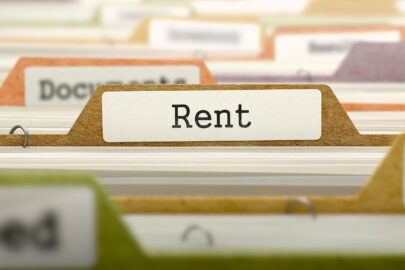Rising levels of renting and a post-referendum rise in unemployment could cause a ‘toxic cocktail’ for millions of renters because of large gaps in the housing benefit ‘safety net’, according to a new report by Royal London.
The new policy paper, Renters at Risk, has found a surge in the number of working people who would be at risk of being unable to meet their rent in the event that they lost their wage through unemployment or sickness.
Based on analysis of the government’s Family Resources Survey, the report found that in 2013/14, 5.5 million working adults would not qualify for full housing benefit if they were to lose their job. This figure has more than doubled in a decade from around two million at risk in 2003/04.
The report also found that in 2013/14 more than one million children were at risk of their family having to move home because of gaps in the benefits system if a parent were to suffer a loss of income. The growth in ‘renters at risk’ reflects the combined effects of a general increase in the number of private renters, an increase in the level of employment and a series of cuts to the generosity of housing benefit.
The report identifies several groups of working renters who may find that housing benefit would not cover their rent in full if they were to lose an income. Renters may be affected by more than one of these factors. These include:
- Couples who rent a home based on two wages but who would struggle to sustain the rent on one wage: the sharp earnings ‘taper’ on the housing benefit system means that the one remaining wage would in many cases disqualify the couple from help with the rent, leaving them to struggle to retain the property on a reduced income; the report finds that more than 3 million adults are in this situation;
- Single people under 35 who rent privately: for this group, the benefits system only covers the cost of renting a room in a shared house; this is likely to be well below the rent that under 35s who rent their own home are paying; in 2013/14 more than 300,000 young working adults were in this situation;
- People with ‘spare bedrooms’: the benefits system bases help on the number of bedrooms you are deemed to ‘need’, not on the actual property you are living in; for example, a couple with a son and a daughter at primary school would be deemed to need only two bedrooms (as the children can share) even if the children currently have a bedroom each; so housing benefit would not cover the actual rent that they are paying in the event of a loss of a wage; the report finds that around 3.8 million working renters would be deemed to have one or more spare bedrooms;
- People living in the more desirable parts of an area: housing benefit rates for private renters now only match rent levels in the cheaper parts of an area (being based on the lowest 30% of rents across the area); the majority of renters would therefore find that benefits would not cover their actual rent, where they live, and they may have to move miles away to find a property where benefit levels covered the full rent.
Taking all of these factors together, the report found that in 2013/14 5.5 million working renters were at risk of finding that housing benefit would not meet their full rent if they lost a wage, compared with just under 2 million in 2003/04.
The largest group of ‘renters at risk’ are in London (0.98 million) and the South East (0.71 million) but the rate of increase since 2003/04 has been fastest in Northern Ireland, Scotland and the North of England.
Steve Webb, director of policy at Royal London, said: “Rising unemployment and a surge in the number of private renters could create a toxic cocktail where working renters discover to their cost that there are large gaps in the housing benefit safety net. This report shows that the benefits system would not meet the rent of the majority of working renters. Unless they are able to resume paid work quickly, 5.5 million working renters would be at risk of not being able to pay the rent and having to move to cheaper accommodation, if they could find it.
“More needs to be done to help families living in rented accommodation to think through the implications of the very limited state safety net on which they might be relying.”
Debbie Kennedy, head of protection at Royal London, said: “When people take out a mortgage it is normal to think through how the mortgage would be paid if they were to lose their job or go off sick. But this conversation is much less common when people enter into a tenancy agreement.
“This report highlights the large number of people who could find that the support they expected is simply not there if they lost a wage. In an era where private renting is growing so rapidly, we need to ensure that renters are better prepared for such eventualities.”
